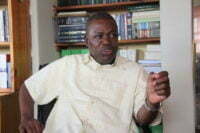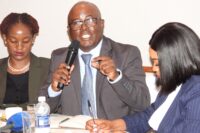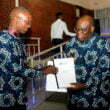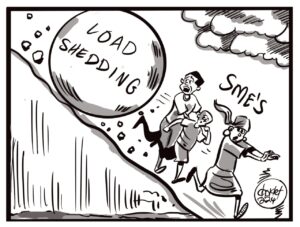Transparency International vice chairperson Rueben Lifuka says societies are partly to blame for the escalating levels of corruption because they elect people with well known corruption backgrounds to leadership positions.
And Lifuka, who is also Transparency International Zambia chapter president, says there are unprecedented levels of impunity for corruption which compromises the efficacy of investigations.
Lifuka was speaking at the 2019 Anti Corruption Conference organized by Trinidad and Tobago Transparency Institute in Port of Spain, on March 21, 2019 at Hilton Trinidad Hotel.
“In recent times and in many parts of the world, we are witnessing a worrying phenomenon. Corruption continues to flourish uninhibited with no voices of protest raised against it. We the members of society in fact have come to accept corruption as an evil that will always be with us and very little can be done to eliminate it. It is my contention that the greatest tragedythat we face in our countries today, is not the high levels of corruption, the tragedy lies in the indifference that we the people have towards corruption. We have normalized corruption and we go further and rationalize it- we find good reasons to exonerate those accused of corruption. In fact, the corrupt are not without a huge legion of supporters and beneficiaries of their ill gotten wealth. Those who speak or act against the corrupt, are labelled to be political or tribal. At times we have seen heads of government institutions, vilified simply for doing their job,” Lifuka said.
“The corrupt live among us, we know them and at times we even elect them into positions of power. This is the reality of the world we live in. It is quite amazing to observe those instances when society elects persons with well known corruption background and yet we expect them to undergo some form of metanoia and repent from their ways when given the levers of power. Talk about asking fish to fry itself. We as society are at times equally to blame for the corruption taking place in our communities.”
He noted, however, that sometimes society took a back seat out of frustration with lack of progress in the fight against corruption.
“Admittedly, at times society takes a back seat out of frustration with the lack of progress in the fight against corruption. It is frustrating to note how corruption cases involving high profile persons in society drag on for years before getting to any conclusion and yet the law enforcement agencies and the courts of law act expeditiously on cases involving the small fish. A number of our chapters conduct Bribe Payers Index survey which examine people’s experiences with corruption and one question whose answers are disheartening relates to whether people who have experienced acts of bribery have reported these to the relevant authorities and the answer is NO- we have no faith that these agencies will do anything about it,” Lifuka said.
And Lifuka said there were unprecedented levels of impunity for corruption which compromises the efficacy of investigations.
“High levels of corruption are now accompanied by unprecedented rise in impunity for corruption. In Transparency International, we consider impunity as getting away with bending of the law, beating the system or escaping punishment. Impunity is anathema to the fight against corruption. Due to impunity, the corrupt have lost all manner of fear for public resources and property, the corrupt do not fear the consequences of the law – because through their corrupt deeds, they can circumvent all authorities including the courts of law. It is this culture of impunity that has provided a fertile ground for new forms of corruption – some which violates human rights and threatens peace. Impunity makes the corrupt bold and quite often, the corrupt fight back. The reality that has to be faced is that with the rising impunity, the corrupt threaten, harass and at times harm anti corruption activists, investigative journalists, law enforcement officers and all other authorities,” he said.
“Impunity for corruption compromises the efficacy of investigations and prosecutions of allegations of corruption, particularly those involving persons who are politically connected. Impunity may equally compromise the independence of the judicial system when allowed to prevail. Impunity gives rise to state capture as seen in South Africa where the three Gupta brothers from India, who settled in that country, utilized their relationship with former President Jacob Zuma to literally milk the country of its wealth. The Guptas went to the extent of identifying persons to be appointed to Cabinet. This impunity is aptly captured in Robin Renwick’s book – “How to Steal a Country.” That is what immunity can do- it can lead to not only loss of public resources but a country as well. What was happening in South Africa during President Zuma’s reign reminded me of the infamous statement of Oscar Raymundo Benavides- a Field Marshal and former President of Chile, who once quipped -“For my friends everything; for my enemies, the law.”In order to successfully crackdown on corruption, we should equally tackle the rising impunity.”
He said political patronage was another source of concern.
“Similarly, political patronage remains another growing concern in countries around the work. Patronage is prevalent and used to party loyalists with unrestricted and unfair access to public contracts and tenders. The beneficiaries of this patronage often do not have the necessary qualification and experience to execute these public contracts – they receive these favour simply on account of their membership to the ruling party or their connectedness to those with power. Patronage does not guarantee the quality of public works or goods supplied by this group which will sometimes refer to as “Tenderpreneurs” in our region. Usually Tenderpreneurs have no specific skills but they have the right connections to identify tenders which they get and these are often poorly executed or end up being sold to other contractors to execute. There are a number of people who make a living simply be taking advantages of their relations with those in power,” Lifuka said.
He observed that public procurement was one area where trillions were lost every year to corruption in countries with poor regulations.
Lifuka also observed that another hindrance in the fight against corruption was denial from government officials who did not want to accept that the problem exists.
He said there was need to change the approach to fighting corruption for it to be more effective.
“Of concern to me and many others is that over the years, colossal investments have been made in this anti corruption industry and yet this is not commensurate with the results on the ground…The traditional approach is about finding wrong doers- investigating and prosecuting them and securing a conviction. It is intended in this scheme of things, that conviction sends a strong signal to would be offenders that corruption does not pay. However, the reality that we have to face is that convictions have never stopped people from engaging in corruption. We witness in many countries where those alleged to be corrupt easily hire the best lawyers in town to beat the system. Admittedly, some judiciaries are independent and capable of deciding on cases on their merit, but it is also true that there is corruption in the judiciary as well. In 2007, Transparency International prepared a Global Corruption on Report which focused on the Judicial systems around the world and there is one statement made by one respondent when asked if he had encounter corruption in the judiciary of his country – “he said –Why would anyone hire expensive lawyers, when you can bribe the Judge?”,” Lifuka said.
“We emphasise too much on the efficacy of the law and its ability to nip in the bud all manner of corruption. But we need to go beyond the law and deal with building integrity in the public and private sector. We should seek to build individuals, communities and institutions anchored on integrity. Public servants should not engage in corruption because they are afraid of the legal consequences once caught, but they should abstain from this vice because they respect and uphold the value of honesty in their dealings. Corruption should be fought from the ethical point of view as well. I should also highlight that our approach in cracking down on corruption is mainly reactive- we react to incidences of corruption and many a times these unscrupulous individuals are miles ahead in planning their corrupt schemes. We need to invest time and resources in thinking ahead as to the types and forms of corruption that we may have to address and contend with in the future.”
Among his recommendations, Lifuka said there was need for clear, innovative strategies based on good analysis of the state of corruption, necessary legal reforms to complement the work being done in integrity building, public procurement laws and regulations which are transparent and aligned to international standards and campaign financing regulations.
Lifuka also recommended that schools should have integrity programs in order to prepare a new generation of leaders, public servants, professionals and entrepreneurs that will uphold the values of honesty and integrity.












